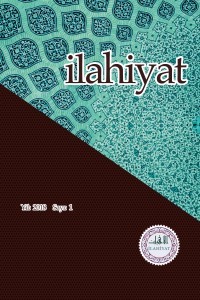MECELLETÜ’L-AHKAMİ’L-ADLİYE VE YEMEN MEDENİ KANUNUNDA HAKKIN KÖTÜYE KULLANILMASI (TEASSÜF)
Hukuka aykırı fiil ya da hakkın kötüye kullanımı tabirlerinin anlam ve mahiyetçe diğer bir fıkhî karşılığı teassüftür. Teassüf; “bir kimsenin mülkünde veya lehinde sabit olan bir hakkında bu mülk veya hakka müteallik olarak bedelli veya bedelsiz bir şekilde haddizatında meşru, mubah bir eylemde bulunmakla beraber işbu eylemi sonucunda kendisi dışındaki kimseye zarar vermesi, hukukun hikmeti ve ruhuna aykırı bir durum meydana getirmesi” şeklinde tarif edilebilir. Fukaha, kendi mülkünde dahi olsa mutâd sınırlara aykırı bir şekilde tasarrufta bulunan kimselerin sorumlu tutulacağı hususunda ittifak halindedir. Mutad/meşru bir tasarrufta bulunulduğu noktasında ise görüş ayrılıkları söz konusudur. Ebû Hanife, Şafi, Malik ve İbn Hanbel hak sahibinin bu tür olağan eylemlerden men edilemeyeceğin savunurken Ebu Hanife bu eylemin hukuken meşru olması ve şerî cevaz damâna münâfîdir kuralından hareketle tazminin gerekmeyeceğini söylemekle birlikte kimi durumlarda sadece diyâneten sorumluluğun gündeme gelebileceğini ifade eder. İmam Muhammed ve Ebû Yusuf ise meydana gelebilecek zararın tahammül edilemeyecek boyuta (zarar-ı fâhiş) varması durumunda kişinin ilgili tasarrufunun engellenebileceğini söyler. Bu hususta hem Mecelle hem de Yemen Medeni Kanunu İmam Muhammed ve Ebû Yusuf’un görüşünü isabetli görerek kanunlaştırmışlardır.
THE ABUSE OF RIGHTS IN THE YEMENI LAW AND JUDICIAL JUDGEMENTS JOURNAL COMPARATIVE STUDY OF ISLAMIC JURISPRUDENCE (TAASSUF)
It has become clear that the notion (Abuse) notion is an alien term from Western Law Jurors and is seemingly an equivalent of (lamentable use) in Islamic Jurisprudence, or Fiqh. It means the practice of an originally legitimated action as per a proven legitimate right – with or without remuneration- or even as per lawfully allowable actions; however harming others or violating the cause of wisdom behind the legitimacy of the action. Islamic scholars unanimously agreed upon the fact that a person is held accountable for the damage incurred by the use of his rightful property in an unusual manner; as in, setting their land on fire on a stormy day, scorching lands of others around theirs. In this case, they are considered as aggressors and they are required to compensate the others for their loss. However, if the use of property is in a usual manner, Islamic jurists differed with their judgments about this case. Abu-Hanifa and Al-Shafii agreed that it was permissible; But Abu Hanifa stated that they have the right to do whatever they want with their property but will be questioned about this action in the afterlife. However, according to Malek and Ahmad’s sectors, they agreed that it is not permissible; when damage is considerable according to Muhammad and Abi-Yusif it not permissible and this judgment has been adopted by the Judicial Decisions Journal. Restricting the use of the right to prevent harm to others is consistent with the purposes and spirit of the law, and the realization of the noble verses “do not harm” and “a view of facilitation” and “no harm is a will from God” and the words of the Holy Messenger: “No harm.” The magazine’s opinion, which combined the human right to use his property and the restriction of the right to use, was distinguished by the restriction of non-harming the rights of others to whether the damage was obscene other than non-obscene, because preventing the owner in that necessitates blocking the door of the possibility of the person to use his property.
___
- el-Bağdadî. Macmaʿ ed-Damanât, el-Matbaatü'l Hayriyye, Kahire 1308.
- ez-Zeylaî, Cemalüddin. Tebiîn el-Hakaʾik Şerhü Kenzi'd-Dakaik. Matbaatü Bolak, 1313-1315.
- el-Ferra. el-Ehkâm es-Sültaniyye. thk. Muhammed elfakî, Darü'l Kütüb el-Ilmiyye, Beyrut 1421.
- Ibnü Raceb el-Hanbali. Camiʿ el-Ulûm vel Hikam. Matbaatü'l Bâbi el-Halabi, 1369.
- İbn Rüşd, el-Hafid Muhâmmed b. Ahmed. Bidâyetü’l-Müctehid Nihtu’l-Muktasid, Mektebetü'l-İstikame, Mısır 1371.
- Kâsânî, Alauddin. Bedâiu’s‐sanâ’i’ fi tertîbi’ş‐şerâi’. Kahire 1327 h.
- Kemal, Yıldız. İslam Sorumluluk Hukuku; Akit Dışı sorumluluk. M.Ü. İlahiyat Fakültesi Yayınları, İstanbul 2013.
- Kurtubî, Ebû Abdullah Muhammed el-Ensâri. el-Câmi li Ahkamî’l-Kur'ân. Darü'l-Kütübi'l-Mısriyye ty.
- Mansûr el-Bahuti. Keşşafü'l Kinaʿ ela Metni'l İknaʿ. Matbatü Ansâr Essünne el-Muhammediyye 1366.
- Mecelle-i Ahkâm-i Adliye, thk. Necib Hevavini, Editör: Nûr Muhammed, Kârhane Ticaret Kütüb: Aram Bağ, Karatçi.
- Molla Hüsrev. Düraru'l Hükkâm Şerh Guraru'l Ehkâm. Daru İhyaʾ el-Kütüp el-Arabiyye.
- Senhûrî, Abdurrezzâk Ahmed. el-Vâsit; Nazariyyatü'l İltizâm Bivechin Âmm. Mektebetü Greenberg 1946.
- Serahsî, Muhammed b. Ebî Sehl. el‐Mebsût, Matbaatu Dari's-Saadat, Kâhire 1331 h.
- Şafiî. el-Ümm. el-Matbaatü'l-Emiryye, Mısır 1321.
- Şâtıbî, Ebû İshak İbrahim. el‐Muvâfakât fî Usûli’l‐fıkh. Daru İbn Affan, 1997.
- Şevkânî, Muhammed b. Ali. Neylu’l-Evtâr Şerhu Muntegâ’l-Ahbâr. el-Mektebetü'l-Mısriyye, 1357h.
